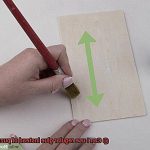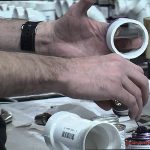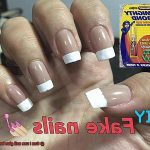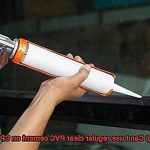Do you find yourself feeling embarrassed about your missing teeth or frustrated with dentures that just won’t stay in place? Maybe you’ve heard of a DIY solution involving nail glue to secure your false teeth. But is it really safe to use nail glue for fake teeth? Hold up before trying this at home, as there are some serious risks and drawbacks to consider.
Nail glue is designed for nails, not teeth. It has a completely different chemical makeup than dental adhesives created specifically for false teeth. While using nail glue may seem like a quick fix, it can cause major oral health issues such as gum damage, tooth decay, and even toxic reactions from the chemicals in the glue.
In this blog post, we’ll dive into the misconceptions and dangers of using nail glue for fake teeth. We’ll also explore safe and effective alternatives to keep your dentures or implants securely in place without harming your mouth. So if you’re wondering whether or not you can use nail glue for fake teeth, read on to learn more.
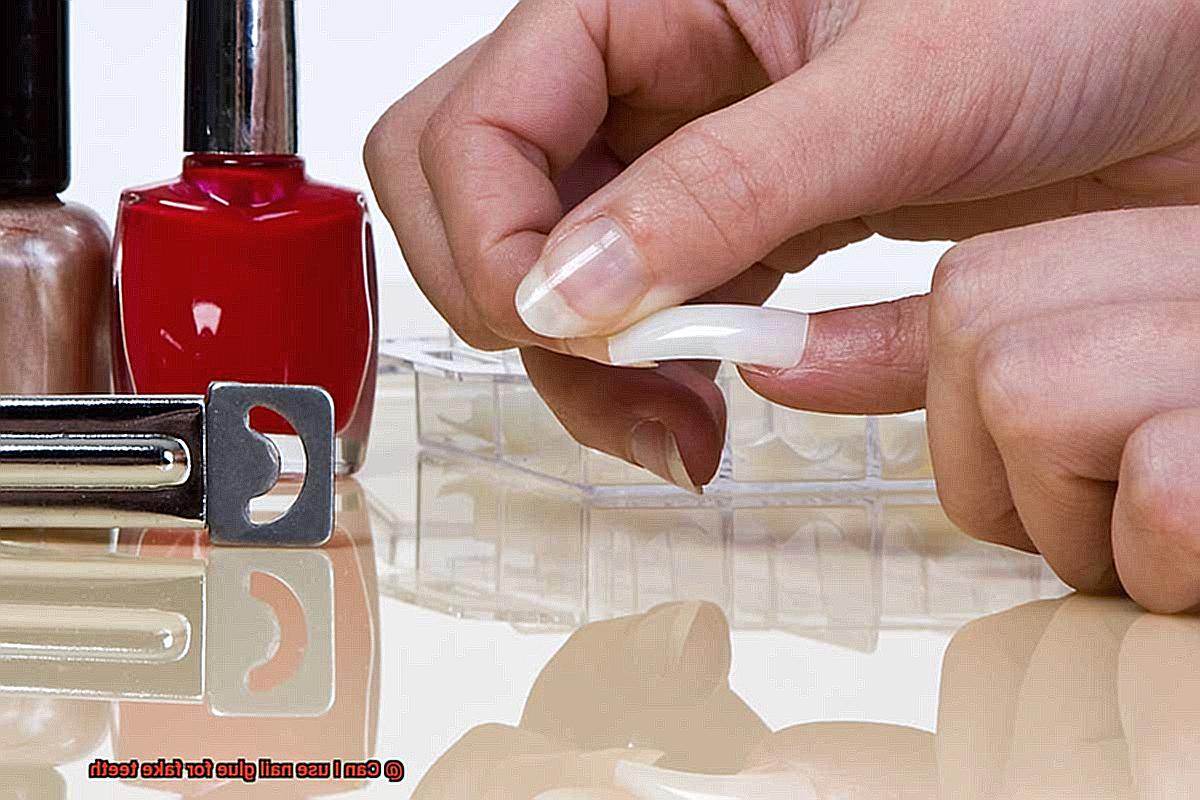
The Dangers of Using Nail Glue on Fake Teeth
Contents
- 1 The Dangers of Using Nail Glue on Fake Teeth
- 2 Possible Health Risks Associated with Nail Glue
- 3 Why Nail Glue Is Not Suitable for Attaching Fake Teeth
- 4 Alternative Options for Attaching Fake Teeth
- 5 What to Look for in a Dental Adhesive
- 6 Tips for Properly Applying Dental Adhesives
- 7 Common Mistakes to Avoid When Attaching Fake Teeth
- 8 How to Maintain Your Fake Teeth After Application
- 9 Conclusion
Despite its popularity as an adhesive for cosmetic purposes, using it on teeth can lead to severe consequences.
One of the most pressing issues with using nail glue on fake teeth is the risk of ingestion. The glue contains harmful chemicals that can be toxic if swallowed accidentally. Ingestion can result in stomach pain, nausea, vomiting, and in some cases, death. To avoid such health hazards, it’s best to steer clear of using nail glue on fake teeth.
In addition to ingestion, nail glue can cause damage to teeth and gums. The adhesive is meant for use on non-porous surfaces like plastics or metals. When applied to the delicate surface of teeth and gums, it can irritate and even damage tooth enamel. This could lead to long-term dental issues that may require expensive treatment.
Furthermore, some individuals may be allergic to the chemicals found in nail glue. If used on fake teeth, they could experience symptoms such as redness, swelling, itching, and rash. Such allergic reactions can make wearing fake teeth uncomfortable and dangerous.
In conclusion, it’s essential to use safe and approved dental adhesives when fixing fake teeth. Dental adhesives are specifically formulated for use in the mouth and are designed to provide a secure hold without causing any harm to your health or your smile. By choosing the right adhesive, you can ensure your safety while enjoying a beautiful smile.
Possible Health Risks Associated with Nail Glue
Think twice before you do. While it may seem like a quick and easy solution, the possible health risks associated with using nail glue for fake teeth are not worth it. As an expert in this field, let me share with you the dangerous consequences of using nail glue for fake teeth.
The main ingredient in nail glue is cyanoacrylate, a powerful adhesive that releases fumes when exposed to moisture. Inhaling these fumes can cause respiratory problems such as coughing, shortness of breath, and even asthma attacks. Your respiratory system is vital to your overall health, and compromising it for temporary hold on your fake teeth is not worth the risk.
In addition to respiratory issues, using nail glue for fake teeth can also lead to digestive problems. If the glue comes into contact with your skin or is accidentally ingested while eating or drinking, it can cause nausea, vomiting, and abdominal pain. If the glue becomes dislodged from your fake teeth and is swallowed, it can even cause a blockage in your digestive tract that requires immediate medical attention. This could be a painful and scary situation that could have been avoided.
Furthermore, nail glue can cause skin irritation and allergic reactions. The skin around your mouth area is sensitive, and if the glue comes into contact with it, it can cause redness, itching, and swelling. In some cases, people may even develop an allergic reaction to cyanoacrylate that causes a rash or hives. This could harm not only your oral health but also your overall well-being.
Why Nail Glue Is Not Suitable for Attaching Fake Teeth
In fact, attempting to use nail glue for this purpose can lead to serious consequences that are not worth compromising your health for.
One of the primary reasons why nail glue is not suitable for attaching fake teeth is due to its chemical composition. Nail glue typically contains cyanoacrylate, which is a powerful adhesive designed to bond quickly and strongly to surfaces. However, when it comes into contact with the soft tissues of the mouth, such as the gums or tongue, it can cause irritation, inflammation, and even chemical burns. If the glue accidentally comes into contact with natural teeth, it can cause damage to the enamel or even result in tooth loss because cyanoacrylate bonds so strongly that it can be difficult to remove without causing damage.
Another issue with using nail glue for fake teeth is that it may not provide a secure enough hold. While cyanoacrylate may bond quickly, it may not be strong enough to hold onto the fake teeth for an extended period of time. This can result in the teeth becoming loose or falling out entirely, which can be embarrassing and uncomfortable.
So what should you do instead? The best option is to use dental products that are specifically designed for attaching fake teeth. Denture adhesive or dental cement products are formulated to be safe for use in the mouth and provide a strong hold without causing damage or discomfort. Additionally, they offer a long-lasting hold that will keep your fake teeth securely in place.
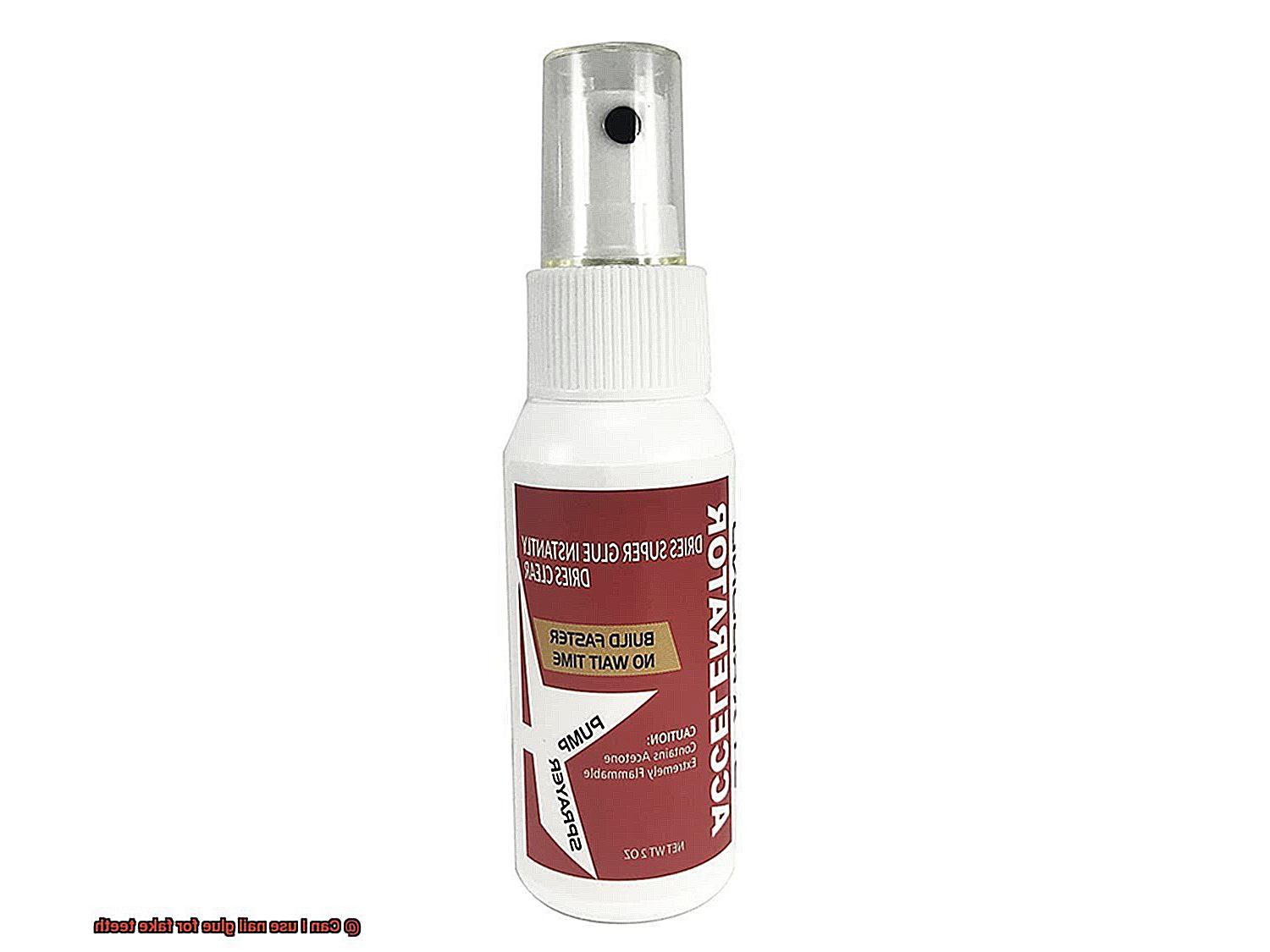
Alternative Options for Attaching Fake Teeth
Using nail glue can cause serious harm to your health and even lead to tooth loss. Fortunately, there are several alternative options available that are safe, effective, and provide a long-lasting hold.
One popular option is denture adhesive. This specifically designed adhesive can provide a stronger and more secure hold than nail glue for denture wearers. It’s easily available in drugstores and is also cost-effective.
For a more permanent and natural-looking solution, dental bonding might be a good fit for you. This option requires a visit to the dentist and can be more expensive than using nail glue or denture adhesive, but it’s worth it for a more natural-looking and long-lasting solution. A special type of resin is used to attach the fake teeth to the existing teeth.
If you’re looking for a temporary solution, dental wax can be molded to fit the shape of the teeth and provide a temporary hold. However, it’s important to note that dental wax is not a long-term solution and should only be used as a temporary fix until a more permanent solution can be found.
For those looking for a permanent solution for missing teeth, dental implants are an excellent option. This process involves surgically inserting an implant into the jawbone and attaching a prosthetic tooth to the implant. While this option can be more expensive and require a longer recovery time, it provides a permanent and natural-looking solution for missing teeth.
When deciding on the best option for your individual needs, consider factors such as cost, durability, and appearance. Consulting with a dentist or dental professional can also provide valuable insight into the best solution for your specific situation.
What to Look for in a Dental Adhesive
When it comes to choosing a dental adhesive for your false teeth, safety and effectiveness should be your top priorities. Here are five factors to consider before making your decision:
Strength
A strong adhesive is crucial for keeping your false teeth in place and preventing them from falling out or becoming loose while you eat or speak. Look for a product that provides a secure hold throughout the day.
Type
There are two main types of dental adhesives
Ingredients
Some people may have allergies or sensitivities to certain ingredients in dental adhesives. Be sure to read labels and choose an adhesive that does not contain any known allergens or harmful chemicals.
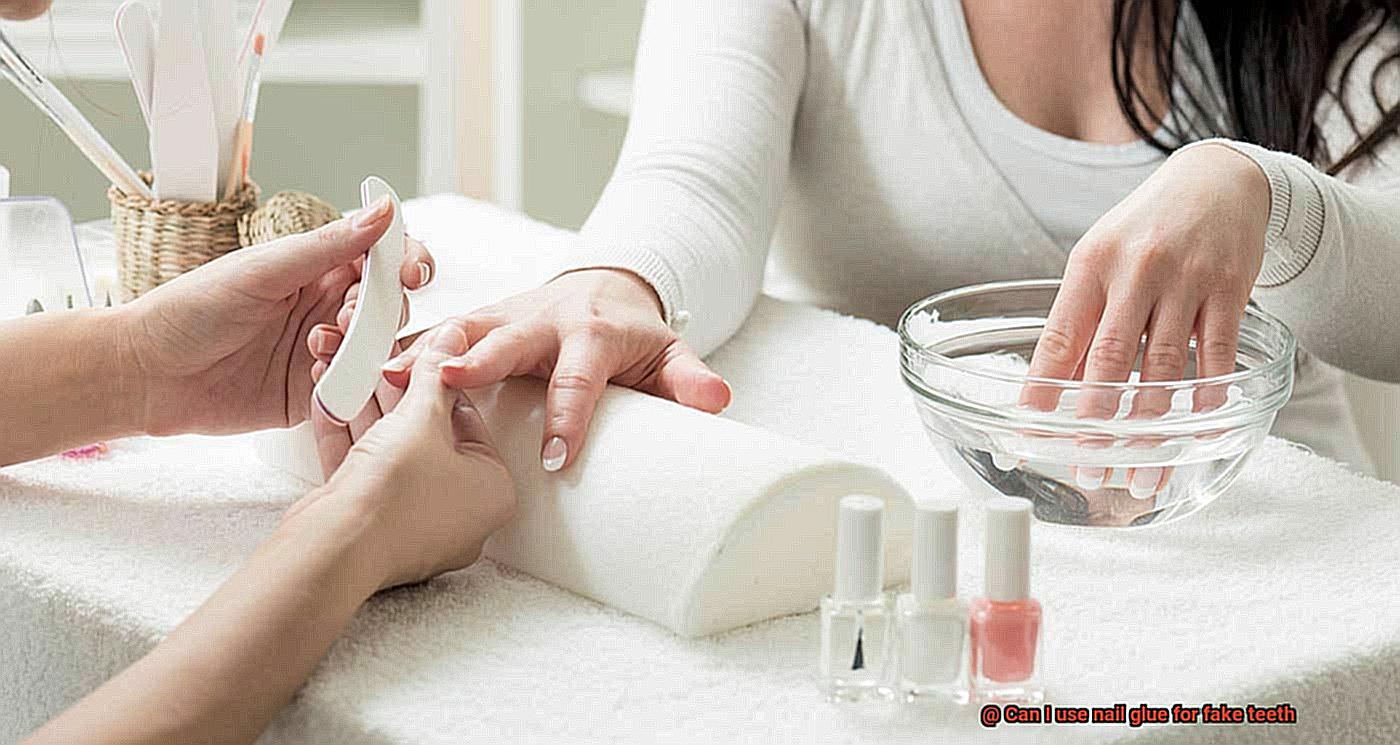
Ease of use
Some adhesives require more preparation and application time than others, so it’s important to choose one that fits into your daily routine and is easy for you to use. Look for products with clear instructions and user-friendly packaging.
Compatibility
Make sure the adhesive is compatible with your false teeth as well as any other dentures or dental appliances you may have. Choosing an incompatible adhesive can lead to discomfort, irritation, or damage to your oral health.
Tips for Properly Applying Dental Adhesives
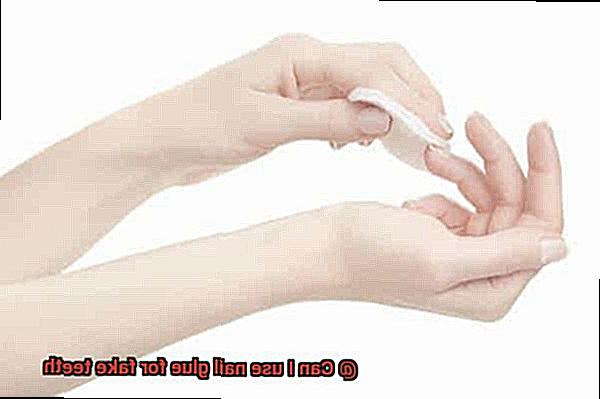
Proper application of dental adhesives is key. Here are some helpful tips to ensure a successful application:
Begin with a clean slate
Before applying any dental adhesive, make sure your mouth is thoroughly cleaned through brushing and flossing. This will help ensure that the adhesive can stick properly and last longer.
Use sparingly
Using too much adhesive can lead to excess oozing and discomfort. Apply only a pea-sized amount of adhesive in thin strips on the back of your fake teeth.
Wait before placing in your mouth
Give the adhesive a few seconds to become tacky before placing your fake teeth in your mouth. This will provide a better grip and increase the adhesive’s effectiveness.
Press and hold
To ensure that your fake teeth are securely attached, use your fingers to press and hold them in place for a few minutes. This will help mold them to your gums and ensure they don’t fall out.
Avoid eating or drinking immediately after application
It’s important to wait at least 30 minutes after applying dental adhesive before eating or drinking anything. This will give the adhesive enough time to set and provide maximum hold.
Common Mistakes to Avoid When Attaching Fake Teeth
It’s important to avoid common mistakes when attaching them to ensure a comfortable and safe fit. Let’s dive in and explore some of these mistakes.
Firstly, never use nail glue or any adhesive not designed for use in the mouth. These products can contain harmful chemicals that can be dangerous if ingested. Plus, nail glue dries much faster than dental adhesives, making it difficult to properly adjust the position of your fake teeth once attached.
Secondly, using too much adhesive is a big no-no. It may seem like more is better, but it can cause the adhesive to ooze out around the edges of your teeth, irritating your gums and making it difficult to remove your fake teeth when necessary.
Lastly, always make sure your teeth are clean and dry before attaching the fake teeth. Any residue or moisture on your teeth can prevent the adhesive from bonding properly, leading to an unstable fit.
To avoid these mistakes, use a dental adhesive specifically designed for use in the mouth and follow the instructions carefully. Apply only a small amount of adhesive, applied carefully and evenly. Remember to clean and dry your teeth before attaching the fake teeth.
How to Maintain Your Fake Teeth After Application
You must be excited to show off your brand new smile. But don’t forget that maintaining your fake teeth is crucial to ensuring they last as long as possible. Here are some tips to help you keep your new teeth in top condition:
Avoid Hard and Sticky Foods
One of the most important things to remember when it comes to maintaining your fake teeth is to avoid hard and sticky foods. These types of foods can damage the teeth or even dislodge them from their position. Instead, stick to softer foods and chew carefully.
Clean Your Teeth Regularly
Cleaning your fake teeth regularly is essential to prevent bacteria from building up. Use a soft-bristled toothbrush and non-abrasive toothpaste to gently brush the surface of the teeth, including the areas where they meet your gums. Rinse your mouth thoroughly with water after brushing and avoid using hot water, which can cause the adhesive to break down.
Remove and Clean Your Teeth Overnight
Removing and cleaning your fake teeth overnight gives your gums and mouth a chance to rest, and it also allows you to clean the teeth thoroughly. Soaking them in a denture cleaner solution can help remove any stains or buildup and keep them looking their best.
Consult with Your Dentist If You Notice Any Issues
If you notice any issues with your fake teeth, such as discomfort or looseness, it’s important to address them promptly. Don’t attempt to fix the problem yourself by using nail glue or any other adhesive not specifically designed for dental use. Instead, consult with your dentist or prosthodontist for professional advice on how to safely and effectively address any issues with your fake teeth.
Use a Proper Dental Adhesive
Using a proper dental adhesive that is specifically designed for use with fake teeth is crucial to maintaining your new smile. Nail glue, which is commonly used to attach acrylic nails, may seem like a quick and easy solution, but it can be harmful to your health and cause damage to your teeth. Dental adhesives are formulated to be safe for use in the mouth and provide a secure hold without damaging your teeth or causing irritation.
In addition to these tips, here are a few more things to keep in mind. First, be careful when handling your fake teeth. Dropping them or mishandling them can cause damage. Second, avoid using toothpicks or other sharp objects near your fake teeth as they can scratch the surface. Finally, don’t forget to schedule regular dental appointments with your dentist to ensure that your fake teeth are in good condition.
Conclusion
To wrap things up, it’s crucial to understand that using nail glue for fake teeth is a risky and unsuitable option. The harsh chemicals in nail glue can lead to severe health problems if ingested or inhaled, not to mention the potential for allergic reactions and damage to sensitive mouth tissues.
Choosing a dental adhesive specifically designed for oral use is vital for ensuring a secure hold without compromising your oral health. When selecting an adhesive, keep in mind factors such as strength, type, ingredients, ease of use, and compatibility with your false teeth. Proper application is also critical to achieving a comfortable and secure fit. Avoid common mistakes like applying too much adhesive or using it on dirty or damp teeth.
It’s equally important to maintain your fake teeth properly. Steer clear of hard and sticky foods, clean them regularly, remove and clean them overnight, consult with your dentist if you notice any issues, and always use appropriate dental adhesive.
By following these guidelines and avoiding the dangers of using nail glue for fake teeth, you can enjoy a stunning smile while safeguarding your health.


